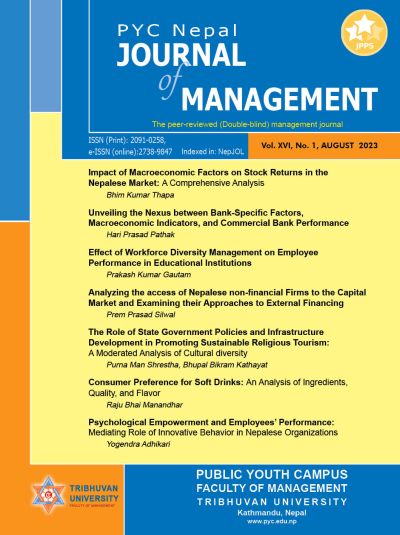Effect of Workforce Diversity Management on Employee Performance in Educational Institutions
DOI:
https://doi.org/10.3126/pycnjm.v16i1.68106Keywords:
workforce diversity management, employee performance, age diversity, gender diversity, tenure diversity, ethnic diversity, employee belief, attitude diversity, personality diversityAbstract
Workforce diversity has both positive and negative effects on performance, which may create challenges as well as opportunities based on the effectiveness of the leadership. The leadership approach and organizational policy for managing employees have discussed theoretical underpinning which ultimately influences employee performance in academic institutions and hence the quality of students. This study examined the effect of workforce diversity management in educational institutions and its effect on employee performance. A structured survey following the deductive approach and analytical research design was used to collect information from conveniently selected self-administered 392 administrative employees of private colleges in Kathmandu. The study revealed significant positive effect of personality diversity, attitude diversity, age diversity, gender diversity, tenure diversity, and ethnic diversity management on employee performance. Among different diversity management practices, attitude and gender diversity management strongly influenced employee performance. This study contributes to improving administrative performance by addressing the diversity issue of higher education institutions. In addition, this study adds value to the social identity theory for employee performance, as the study suggests its significance to improve positive in-group behavioral intentions.
Downloads
Downloads
Published
How to Cite
Issue
Section
License
© Public Youth Campus

